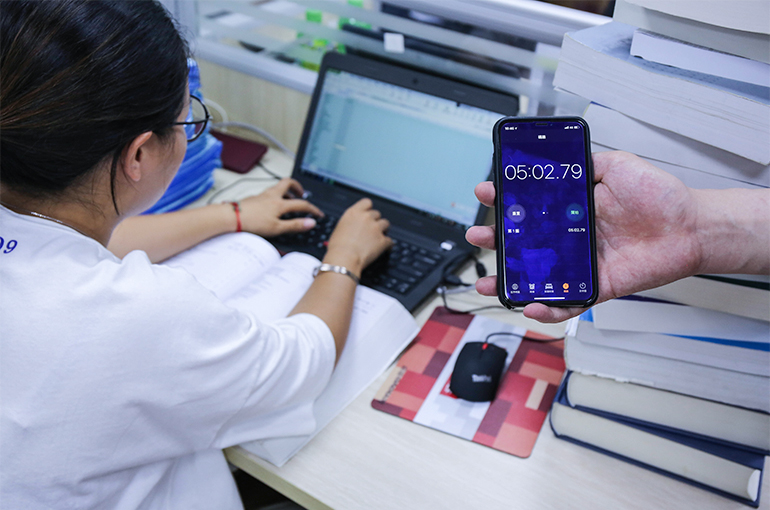 Despite Progress, AI Still Isn't Ready to Go Solo on China Customs Clearance
Despite Progress, AI Still Isn't Ready to Go Solo on China Customs Clearance(Yicai) Dec. 17 -- Artificial Intelligence is becoming an important tool in assisting the classification of imported and exported commodities in China as international trade heats up, but gaps in its ability to generalize, predict future goods, grasp market changes and other areas, mean that it is not yet ready to be deployed on its own, industry insiders said at a recent event.
There are already more than 12,000 10-digit commodity codes and new merchandise is constantly popping up, Wu Xiaoming, deputy director of the China Customs Brokers Association’s expert panel for goods classification, said at the China Customs Clearance and Compliance Management Conference in Wuxi last week. Different countries have different rules, and trade barriers such as tariffs are on the rise so the situation is complicated.
AI, which includes natural language processing, machine learning and image recognition, can update commodity information and classification know-how in a timely manner through continuous learning, Wu said. The technology can quickly identify and classify a large number of commodity descriptions and greatly improve the efficiency of customs’ declarations.
When combined with big data analysis, AI can help companies avoid risks and optimize classification decisions by comparing historical data, Wu said. AI can also classify and combine data from different countries and in different languages, thereby assisting international trade. Image recognition technology is also widely used in cross-border e-commerce.
However, while AI can greatly empower customs clearance, it also brings with it a set of challenges, Wu said. For example, incomplete training data will lead to obvious errors in AI algorithms. AI has limited ability to generalize which makes it difficult for it to predict future goods which means it cannot fully grasp market changes. Its interpretability and transparency are relatively poor, which can cause the public to be suspicious of AI.
AI also lags behind in tricky areas such as whether candy should be declared as sweets, toys or medicine, and whether augmented reality glasses should be classified as electronic products or ordinary glasses, industry insiders said.
To improve AI's ability to generalize, online learning mechanisms need to be rolled out that will allow AI to adapt to changes in merchandise, Wu said. The knowledge base needs to be continuously updated and multiple AI tools can be used to verify each other, Wu said.
Pitfalls
Although AI can make customs’ classification work easier, it will take a long time for automated machines to be able to work independently, said Lin Qian, senior partner at Beijing DHH Law Firm.
Should the classification be wrong, as many as 90 percent of items could be charged additional taxes, said Lin, who has worked in the anti-smuggling department of the General Administration of Customs for 18 years.
And if the tax category is wrong, it might lead to suspicions of a false declaration which could be penalized, she added. Customs deals with between 3,000 and 6,000 such cases a year. The third main risk is smuggling, which may result in criminal charges.
It would also be difficult to assign legal responsibility should a classification change, she said. “It is not possible to hold AI accountable. The more widely AI is used, the more one should be aware of one's legal responsibilities. This is especially true for thorny issues. The more complex a matter is, the less you should rely on AI, but rather trust your own judgment."
Large customs brokers should club together to set up a new body and work with the customs’ authority to help make classification more accurate and efficient, Lin said, referring to an AI court ruling system developed by internet behemoth Tencent and the courts.
Experts agreed that although AI is powerful, it will not cause people working in customs classification to lose their jobs.
Editor: Kim Taylor